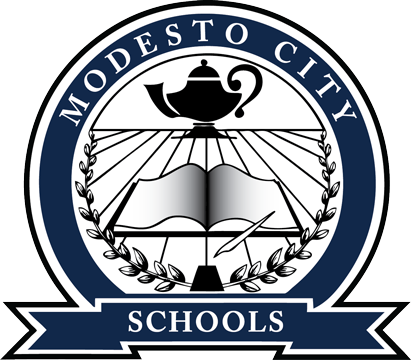Alternative Education
Antony Little
Director III, Alternative Education
Little.A@mcs4kids.com
Phn: (209) 574-8194
Fax: (209) 574-8193
Modesto City Schools has a system of programs, special schools, and educational options to provide alternatives to students who are significantly down credits, at-risk of dropping out, who wish to accelerate, who have unique circumstances, or those who for a variety of reasons have not experienced success in the traditional comprehensive structure. The goal is to provide a variety of options to create the conditions for all students to be successful and achieve the goal of a diploma, or success relative to their level of ability in the case of special needs populations.
When considering alternative placement options, the intent is to evaluate the student’s total situation and determine the educational placement that represents the least severe or restrictive environment that will most likely achieve the desired ends and meet the student’s individual needs. Consideration should also be given to the best match of the educational option for a particular student.
Students With Disabilities / Special Needs
Placement of students with disabilities in continuation, alternative, or the other educational schools or programs described must be preceded by the approval of the appropriate Program Manager and formal IEP team meeting. In considering such placement, appropriate interventions, such as behavior plans, and other required special education protocol must be followed.
Interventions
Prior to referral to an alternative school or program, staff at comprehensive schools attempt to employ interventions at the school site to modify a student’s behavior or otherwise attempt to resolve the issue for which the student is being referred. It is understood that in some cases, prior intervention is not possible; however, when possible, interventions are employed and documented. Such interventions may resolve an issue, benefit both the site and student involved, and make a change of placement unnecessary. Examples of possible interventions include, but are not limited to:
Meetings with Counselors or Administrators
Parent Meetings or Home Visit
Referral to Student Assistant Specialist or Mental Health Counselor
Outside counseling
Summer school/ESS or Tutoring
Modify schedule/Enroll in Class.com course
SST
Principal’s Probationary Contract
Testing/Evaluations
Community Service/Other Alternative Consequences
Migrant Education or ESL Services
Truancy Interventions/Site Attendance Review Team (SART) meetings
